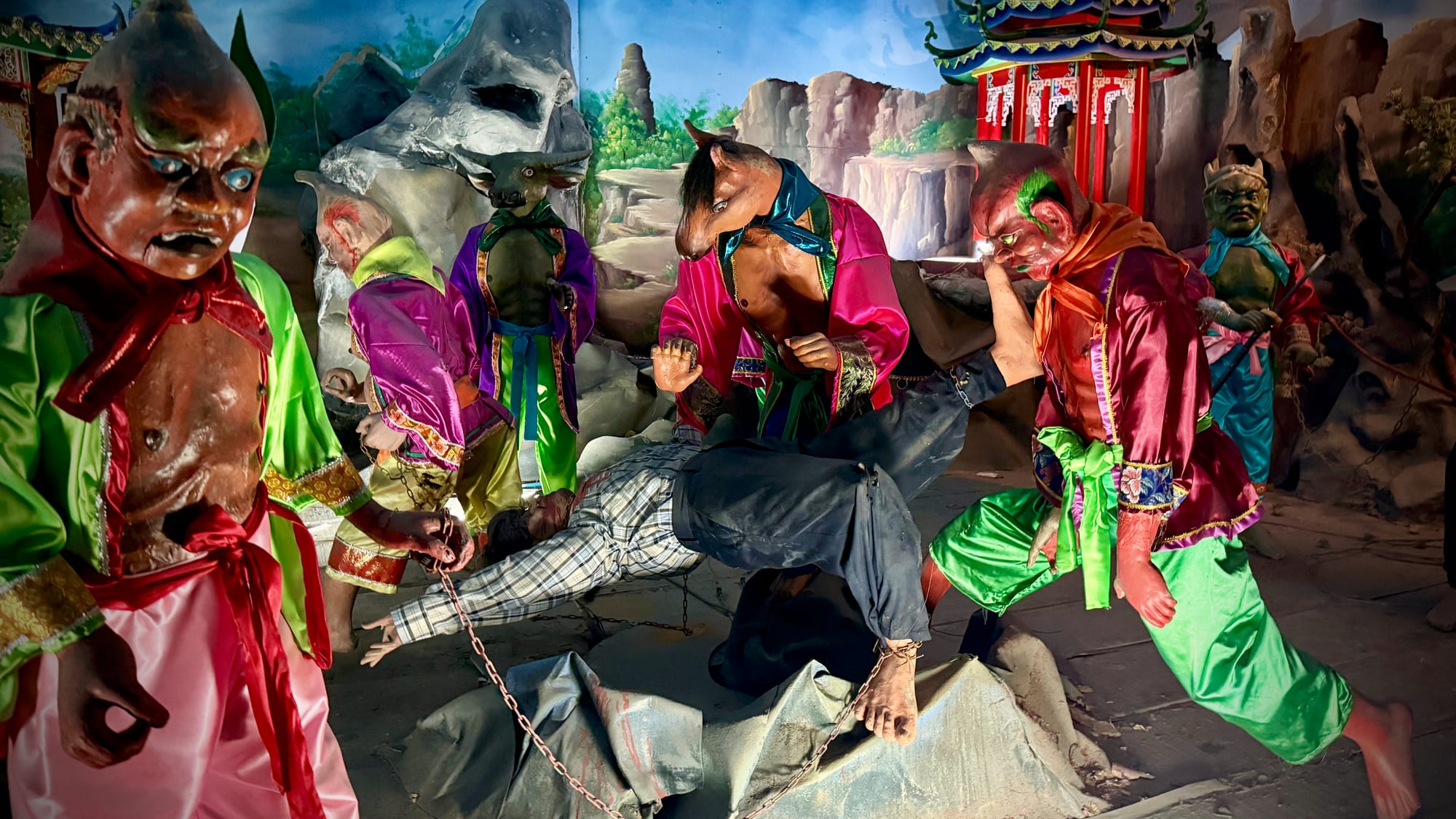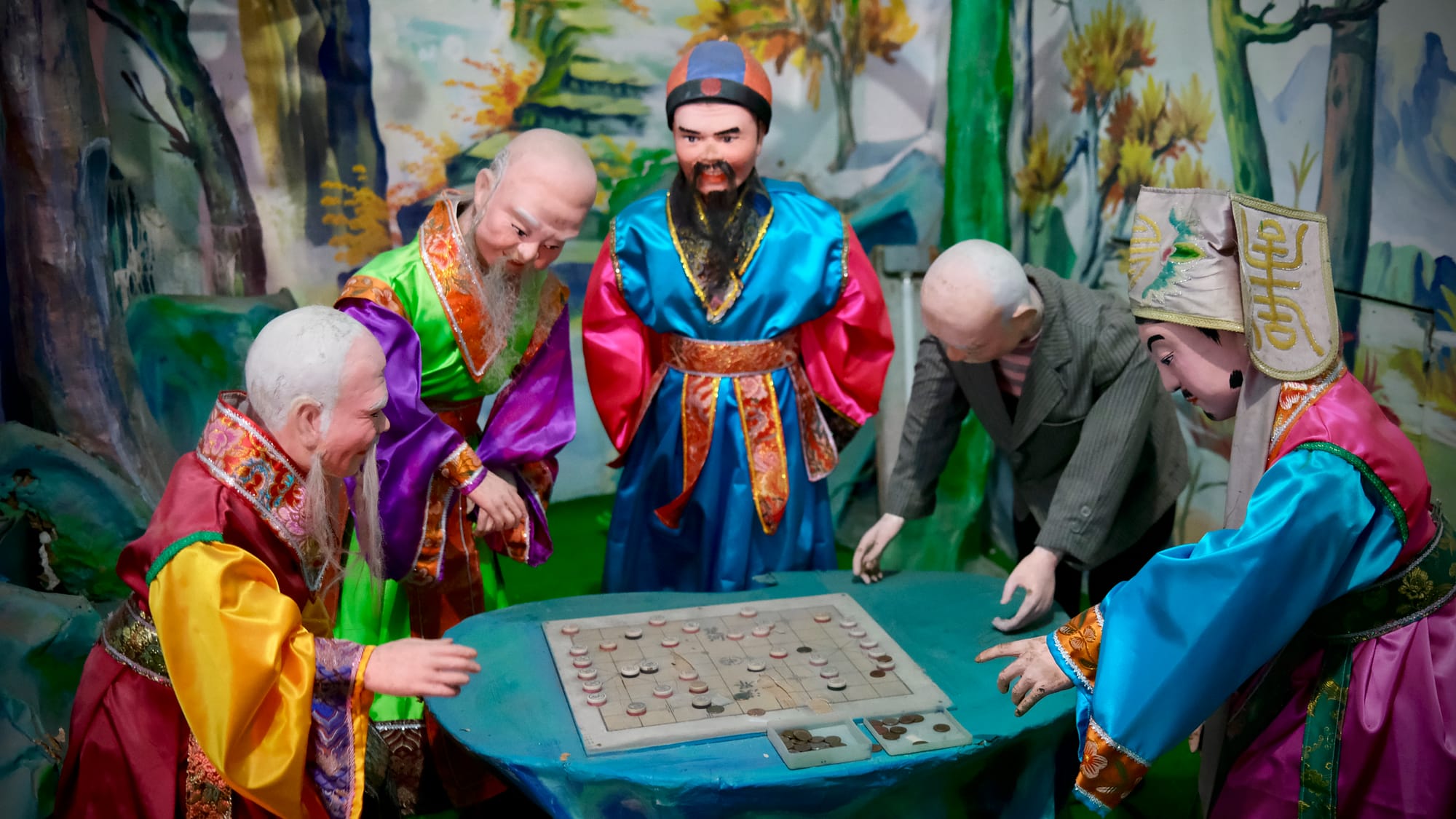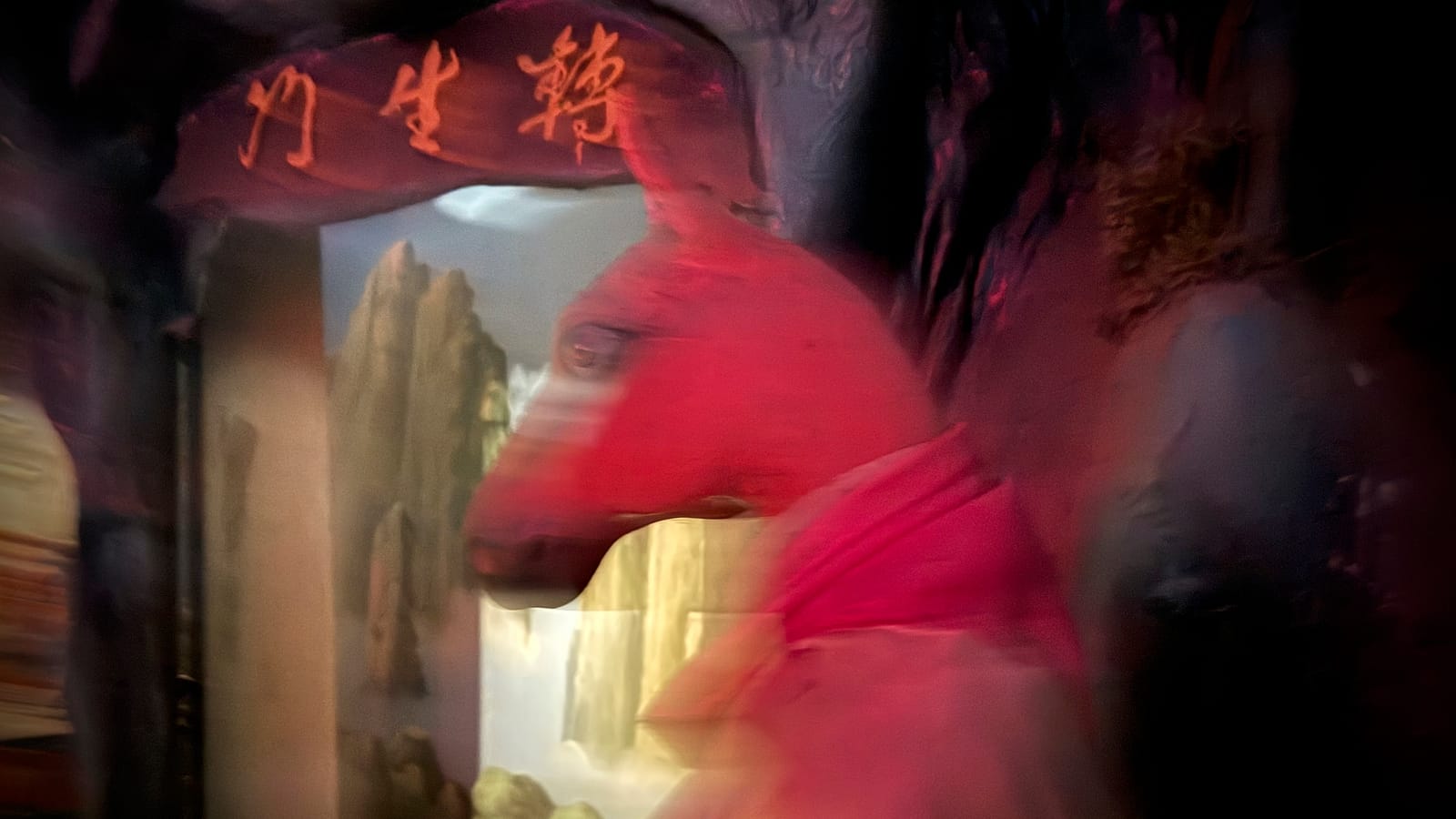The idea of an animatronic version of eighteen levels of hell sounds funny, and for the first five or six levels, it is. But repetition nudges comedy into absurdity, which can quickly descend into horror.
Like the sinners it torments, Madou Daitian Temple is trapped in time. Built in 1979, its sun-bleached paint and lonely vending machines evoke the tender melancholy I felt while visiting Coney Island on a February afternoon: The memory of families with a picnic basket, wowed by the crowds. The ghosts of honeymooners spending more than they should. Madou Daitan Temple occupies a similar zone, its heyday etched in the face of the ancient woman who collects $1.20 for admission to hell and another $1.20 to visit heaven.

Each level of hell is ruled by a king who governs demons that specialize in tongue ripping, disembowelment, and gouging. They could do with some fresh oil in their gears, but their squeaky joints pay dividends in hell. (Anyone with a memory of Chuck E. Cheese knows animatronics are high-grade nightmare fuel.) The eeriest quality belongs to the contemporary clothes of the sinners—blue jeans and khakis conjure a local fever dream rather than a mythic otherworld.
Video seemed like the best way to capture the relentlessness of this particualar hell, so I made this inventory.
Who is this place for? Is it a cautionary tale for the believer who might take a wrong moral turn? A godsend for frazzled parents who want to tame their children? Or is it the equivalent of rubbernecking at a wreck, an attraction that offers the cheap rush of self-righteousness, an opportunity for those who aren’t selling adulterated pharmaceuticals to feel smug in knowing this suffering will not be theirs?
And what is hell for?
I think it speaks to a craving for justice, the need to know the monsters among us— even if they have escaped the punishment of our earthbound institutions—will pay what’s owed in the afterlife. And it’s hard to imagine a rougher hell than being trapped with a squeaky machine performing the same mindless gesture until the end of time.

As for heaven? Lots of tea and board games. The human brain is endlessly inventive when it comes to suffering, but the prospect of eternal salvation seems to leave us at a loss.








